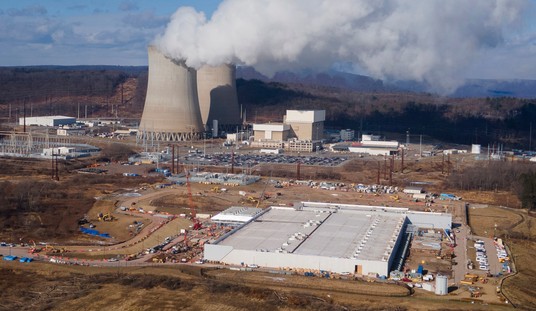Note that it’s not any single poll that’s showing this, it’s the RCP average — the “poll of polls.” A single poll can always cough up a strange, unlikely outlier because of an odd sample or a pollster’s “house effect” (ahem) but the poll of polls is supposed to avoid that by incorporating lots of information across various surveys. If you see a trend at RCP, chances are that trend is real, not noise. Behold:

The last time Republicans were as close as 5.5 points on the generic-ballot average was May 9, 2017 — coincidentally the very day that James Comey was fired. Now Comey’s back for his book tour and suddenly the GOP’s within five and a half points again. Takeaway: The more voters see of Comey, the more they like Trump’s party.
Well … no. Correlation doesn’t imply causation. But what *is* the causation in this case? Republicans haven’t passed anything important lately. Democrats haven’t made any sudden moves or loud noises. Why the closing gap? Even Weekly Standard elections guru Jay Cost is at a loss:
https://twitter.com/JayCostTWS/status/986677345141559297
Is that it? The less voters see of Republican politicians, the more easily they forgot how much they dislike them? Julie Kelly of the Federalist has been tracking generic-ballot polling and notes that some data on guns and immigration suggests Republicans may be benefiting from wedge issues. Could be, although if you look back at the graph above you’ll see the GOP’s support actually dipped a bit in the weeks after the Parkland shooting in mid-February.
It’s worth noting that Trump’s job approval in the RCP average is also up a bit lately from the dregs of last year:

Rasmussen is included in Trump’s RCP average and Rasmussen consistently gives him waaaaaay better number than every other poll tracked. They have him at 50/49 approval, slightly above break even. Of the other six most recent polls taken, none have him better than -10 net and some have him in the -18 or -19 range. Still, you can see from the graph that Trump’s polling has been a few points better over the last few months than it was for much of last year, hovering at around 41-42 percent now versus 38-39 through most of the second half of 2017. The fact that he’s gotten a bit more popular has surely helped the GOP on the generic ballot.
Look again at the generic ballot graph and you’ll see that Republicans have also performed better this year than they did in the second half of last year, bouncing around at 38-39 percent (with a dip for a few weeks in March, possibly gun-related) while Democrats have hovered at 45-46. That is, although the difference between the two parties happens to be at its smallest point in almost a year today, there are no dramatic shifts in either’s support. Democrats have become a *little* less popular and Republicans have become a *little* more popular, which, combined, gets you to a 5.5-point gap. As recently at March 25, the gap was almost identical at 5.8 points. Maybe Trump’s Syria attack, which a majority of the public supports, earned his party a little bounce in the last few days?
Whatever explains this, one conclusion seems inescapable: As usual, the things that political junkies and reporters obsess about seem to matter not at all to ordinary voters. The last few weeks of news have been capital-B Bananas in scandal terms but POTUS and the GOP have suffered little, if at all. The headlines roll by — “Raid on Michael Cohen!” “Comey Calls Trump ‘Mob Boss!'” “Stormy Daniels Releases Sketch of Trump Thug!” “Trump May Fire Rosenstein or Mueller — or Both!” On and on we go, with no polling damage to Trump or congressional Republicans. Does that help explain their resilience, counterintuitively? The more the “siege mentality” on the right deepens, the firmer Trump’s and the party’s support becomes? If that’s true, though, why aren’t we seeing Democratic numbers climb as anti-Trumpers rally to *their* side? If the reaction to scandal were driving the numbers, you might expect to see both parties’ levels of support rising. Instead they’re both more or less flat since February with a generic-ballot gap that’s considerably smaller than it was at points last year.








Join the conversation as a VIP Member